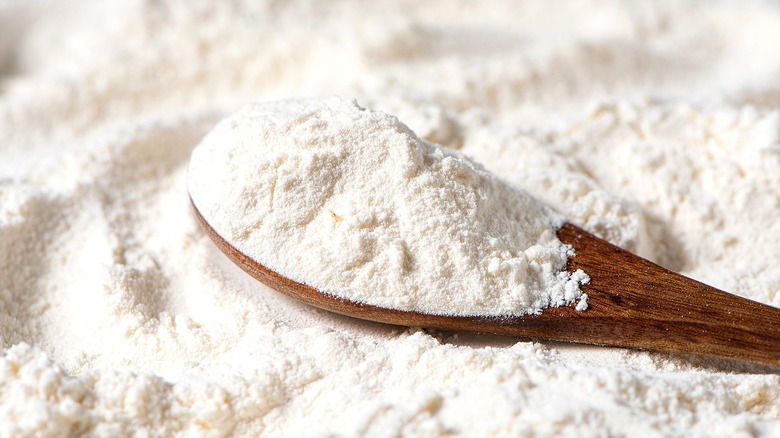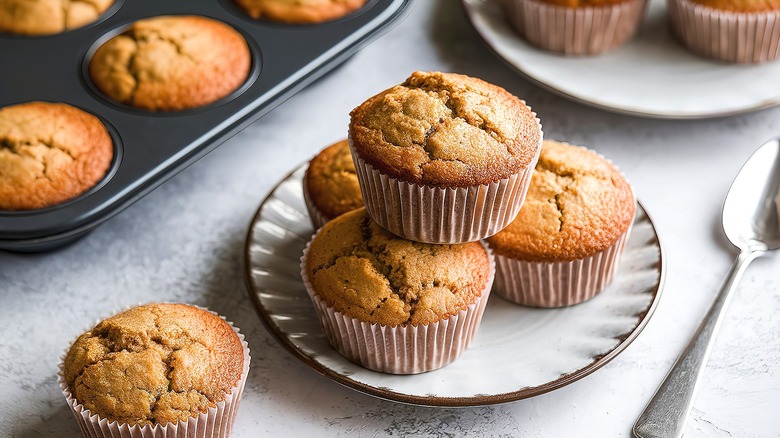The Baking Powder Substitute That Works Seamlessly Without Extra Ingredients
Imagine yourself elbow-deep assembling a favorite baked good only to find you're fresh out of one essential ingredient for the recipe at hand. When it comes to baking, next to flour, sugar, eggs, and butter, baking powder, in all its leavening glory, is another must-have ingredient. If you have zero baking powder to make buttermilk biscuits with sausage cream gravy, you can surprisingly substitute the required baking powder, all-purpose flour, and salt in your biscuit recipe with self-rising flour.
Since self-rising flour contains roughly 1 ½ teaspoons of baking powder for every cup of flour, you can use this convenient alternative to make deliciously tender biscuits. In many recipes, baking powder is used to ignite a special reaction that results in carbon dioxide gas. These tiny airy bubbles are responsible for giving countless breakfast treats and baked goods a light and airy consistency.
Given the fact that self-rising flour is the combination of soft wheat flour mixed with baking powder and a small amount of salt, you can use this substitute in many of your favorite recipes. Foods like buttermilk biscuits and fruit cobbler greatly benefit from this convenient alternative since it leads to ultra-tender results.
Other baked goods, like mixed berry scones, banana bread, and blueberry muffins, can also benefit from the use of self-rising flour. For the best results each and every time, select recipes that call for approximately ½ teaspoon of baking powder for each cup of regular flour.
Self-rising flour is not the only effective baking powder substitute
Even though self-rising flour works wonders for many oven-friendly recipes like biscuits and quick breads, you do need to be mindful when subbing this ingredient in certain baked goods. Since self-rising flour has a lower protein count, specific recipes may not undergo the usual amount of gluten development.
While all-purpose flour is typically composed of both hard and soft wheat and has a protein count of 12 to 14 percent, self-rising flour is made with soft wheat and contains approximately eight to nine percent protein. Because self-rising flour also has a lower absorption rate, consider reducing the amount of liquid in recipes like pancake batter, scones, and muffins. If you're questioning whether or not self-rising flour is a reliable substitute for cookies, results are often mixed.
Cookies made with self-rising flour tend to spread more while baking. However, feel free to experiment and adjust the suggested ratios of other ingredients in your recipe. More than likely, you'll be left with perfectly tender cookies that are simply softer than those made with all-purpose flour.
If you want to expand your repertoire of baking powder alternatives beyond self-rising flour, you can also make homemade baking powder by combining succinct amounts of cream of tartar, baking soda, and cornstarch. In certain cases, substitutes like club soda, whipped egg whites, and baking soda combined with an acid such as buttermilk or lemon juice also work like a charm.

